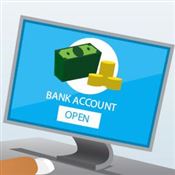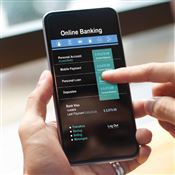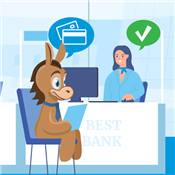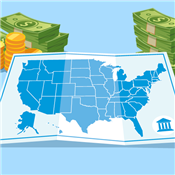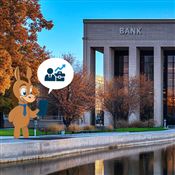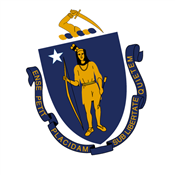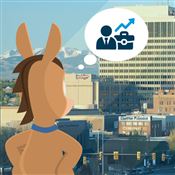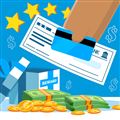Banks That Don't Require Social Security Number
Ad Disclosure: This article contains references to products from our partners. We may receive compensation if you apply or shop through links in our content. This compensation may impact how and where products appear on this site. You help support CreditDonkey by using our links.
Looking to open a bank account without providing your Social Security Number? Read this guide to know which banks don't require an SSN.
 |
There are plenty of legitimate reasons why someone might not have a Social Security number. After all, the U.S. is a country of immigrants, and the gears of bureaucracy turn slowly.
And unfortunately, getting an SSN can take months, if not years.
The good news? Some banks know this shouldn't keep you from getting basic financial services. In this helpful guide, find out which banks don't require a Social Security number.
Bank of America Advantage Banking - Up to $500 Cash Offer
- The cash offer up to $500 is an online only offer and must be opened through the Bank of America promotional page.
- The offer is for new checking customers only.
- Offer expires 05/31/2026.
- To qualify, open a new eligible Bank of America Advantage Banking account through the promotional page and set up and receive Qualifying Direct Deposits* into that new eligible account within 90 days of account opening. Your cash bonus amount will be based on the total amount of your Qualifying Direct Deposits received in the first 90 days.
Cash Bonus Total Qualifying Direct Deposits $100 $2,000 $300 $5,000 $500 $10,000+ - If all requirements are met 90 days after account opening, Bank of America will attempt to deposit your bonus into your new eligible account within 60 days.
- Bank of America Advantage SafeBalance Banking® for Family Banking accounts are not eligible for this offer.
- Additional terms and conditions apply. See offer page for more details.
- *A Qualifying Direct Deposit is a direct deposit of regular monthly income – such as your salary, pension or Social Security benefits, which are made by your employer or other payer – using account and routing numbers that you provide to them.
- Bank of America, N.A. Member FDIC.
Chase Total Checking® - $400 Bonus
- New Chase checking customers can receive $400 when you open a Chase Total Checking® account and make direct deposits totaling $1,000 or more within 90 days of coupon enrollment.
- Unlock more offers with Chase. Get up to $500 per calendar year by referring friends and family. Plus, get cash back from top brands with Chase Offers when you use your debit card.
- Chase Total Checking® has a $15 monthly service fee, you can easily avoid the fee with direct deposits totaling $500 or more, or a minimum average daily balance each statement period.
- Chase Overdraft Assist℠ – no overdraft fees if you're overdrawn by $50 or less at the end of the business day or if you're overdrawn by more than $50 and bring your account balance to overdrawn by $50 or less at the end of the next business day*
- Chase Mobile® app makes banking simple. Manage accounts, pay bills, send money to friends with Zelle® and deposit checks on the go with Chase Quick Deposit℠.
- Chase has the largest branch network in the U.S. with thousands of ATMs and branches. Use the Chase locator tool to find a branch or ATM near you.
- Chase helps keep your money protected with features like Zero Liability Protection, fraud monitoring and card lock.
- Chase Total Checking includes FDIC insurance up to the maximum amount allowed by law.
Why Do Banks Need a Social Security Number?
A Social Security Number is a unique identification that keeps track of your entire financial life. It's used to report your income to the IRS and issue government benefits after you retire.
Banks usually ask for your SSN so they can verify your identity. They'll also use it to check your credit score and banking history to decide if they want to approve you for an account. Plus, if you earn any interest, that can be reported to the IRS.
How to Open a Bank Account Without a Social Security Number
If you don't have a Social Security number, there are some banks that let you open a checking account with other identification documents. Usually, you will need to provide an Individual Taxpayer Identification Number (ITIN) instead.
Typically, you will need to provide:
- Name and date of birth - This can be proved with a current passport, government-issued driver's license, birth certificate, or Consular ID card
- Proof of address - This can be utility bills, lease agreement, current driver's license or state ID
- Identification number - If you don't have a SSN, you can provide an ITIN or Alien Identification Number
Note: Some banks may have different requirements, but these are the ones that are broadly applicable.
An ITIN, or Individual Taxpayer Identification Number, will serve as your identification number for filing your tax returns. If you do not qualify for an SSN, you will need to apply for an ITIN. You can obtain an ITIN by filling out Form W-7 and submitting it to the IRS. Most banks require you to have either a valid SSN or ITIN.
Banks That Don't Require a Social Security Number
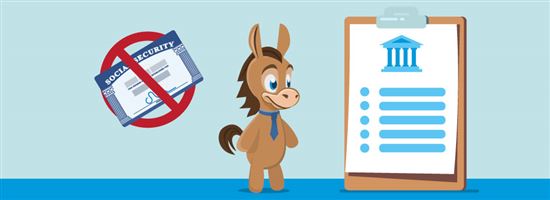 |
Below, let's take a look at what banks and credit unions will offer accounts for those without a Social Security number.
1. Bank of America
Bank of America is a well-known U.S. bank that provides a range of financial services, like checking and savings accounts, rewards credits cards, loans, investing services, and more.
They have thousands of ATMs and financial centers, ensuring you'll have access practically everywhere.
You can open a Bank of America account with an ITIN instead of an SSN, but you'll have to do it at a local branch as the option isn't offered online.
Bank of America Advantage Banking - Up to $500 Cash Offer
- The cash offer up to $500 is an online only offer and must be opened through the Bank of America promotional page.
- The offer is for new checking customers only.
- Offer expires 05/31/2026.
- To qualify, open a new eligible Bank of America Advantage Banking account through the promotional page and set up and receive Qualifying Direct Deposits* into that new eligible account within 90 days of account opening. Your cash bonus amount will be based on the total amount of your Qualifying Direct Deposits received in the first 90 days.
Cash Bonus Total Qualifying Direct Deposits $100 $2,000 $300 $5,000 $500 $10,000+ - If all requirements are met 90 days after account opening, Bank of America will attempt to deposit your bonus into your new eligible account within 60 days.
- Bank of America Advantage SafeBalance Banking® for Family Banking accounts are not eligible for this offer.
- Additional terms and conditions apply. See offer page for more details.
- *A Qualifying Direct Deposit is a direct deposit of regular monthly income – such as your salary, pension or Social Security benefits, which are made by your employer or other payer – using account and routing numbers that you provide to them.
- Bank of America, N.A. Member FDIC.
2. Chase
Chase Bank has 5,000 branches and 15,000+ Chase ATMs[1] throughout the U.S. However, they tend to be near the coasts and around major cities.
If you live in more rural parts of the U.S., you may want to choose another option.
Chase offers personal banking services such as checking and savings accounts, credit cards, home and auto loans, and investing through JPMorgan. You can also take advantage of online banking services through the Chase site and mobile app.
Like Bank of America, you can open a Chase account without a Social Security number, but the ability to do so may depend on your visa or Green Card status.
Chase Total Checking® - $400 Bonus
- New Chase checking customers can receive $400 when you open a Chase Total Checking® account and make direct deposits totaling $1,000 or more within 90 days of coupon enrollment.
- Unlock more offers with Chase. Get up to $500 per calendar year by referring friends and family. Plus, get cash back from top brands with Chase Offers when you use your debit card.
- Chase Total Checking® has a $15 monthly service fee, you can easily avoid the fee with direct deposits totaling $500 or more, or a minimum average daily balance each statement period.
- Chase Overdraft Assist℠ – no overdraft fees if you're overdrawn by $50 or less at the end of the business day or if you're overdrawn by more than $50 and bring your account balance to overdrawn by $50 or less at the end of the next business day*
- Chase Mobile® app makes banking simple. Manage accounts, pay bills, send money to friends with Zelle® and deposit checks on the go with Chase Quick Deposit℠.
- Chase has the largest branch network in the U.S. with thousands of ATMs and branches. Use the Chase locator tool to find a branch or ATM near you.
- Chase helps keep your money protected with features like Zero Liability Protection, fraud monitoring and card lock.
- Chase Total Checking includes FDIC insurance up to the maximum amount allowed by law.
Chase Secure Banking℠ - $125 Bonus
- New Chase checking customers enjoy a $125 checking account bonus when you open a Chase Secure Banking℠ account with qualifying transactions. Open online or at any Chase branch.
- Set up direct deposit and you may get your money up to two business days early—exclusively for Chase Secure Banking℠ customers.
- No minimum deposit to open an account and get started plus no overdraft fees with a Chase debit card that helps you stay within your balance.
- No need to worry about overdraft fees - Chase Secure Banking℠ allows you to spend only the money you have available.
- Chase Secure Banking℠ customers told us they save an average of more than $40 per month on fees after opening their account.
- Pay bills, cash checks and send or receive money with Zelle® with a Chase Secure Banking℠ account.
- Chase makes it easy for you to access your money from anywhere with the Chase Mobile® app, plus thousands of ATMs and branches.
- JPMorgan Chase Bank, N.A. Member FDIC.
Chase College Checking℠ - $125 Bonus
- Enjoy $125 as a new Chase checking customer when you open a Chase College Checking℠ account and complete 10 qualifying transactions within 60 days of coupon enrollment.
- $0 Monthly Service Fee while in school up to the expected graduation date provided at account opening (five years maximum) for students 17-24 years old.
- Wire funds internationally using the Chase Mobile® app or chase.com. Send money to recipients around the world with multiple currency options. Fees apply.
- Keep track of your money with confidence and control in the Chase Mobile® app. The Chase Mobile app helps you bank securely and conveniently from anywhere.
- With Zelle®, you can send and receive money with people and businesses you know and trust who have an eligible account at a participating U.S. bank.
- With Fraud Monitoring, Chase may notify you of unusual debit card purchases and with Zero Liability Protection you won't be held responsible for unauthorized debit card purchases when reported promptly.
- JPMorgan Chase Bank, N.A. Member FDIC
Chase Private Client Checking℠ - Up to $3,000 Bonus
- Elevate your banking relationship and enjoy a bonus up to $3,000 when you open a new Chase Private Client Checking℠ account with qualifying activities.
- Personalized banking made easier with premium benefits, 24/7 support and access to your banking and investment accounts in one place in the Chase Mobile® app.
Earn $1,000 when you deposit $150,000 or earn $2,000 when you deposit $250,000 or earn $3,000 when you deposit $500,000+. - Get up to a $3,000 bonus when you open or upgrade to a Chase Private Client account, a premium checking account which provides you with a dedicated banker and receive investing guidance from J.P. Morgan Wealth Management to help you reach your financial goals.
- Receive personalized wealth strategies from a J.P. Morgan advisor. Your J.P. Morgan advisor gets to know you, your family and your goals to build a custom financial strategy and investment portfolio that reflects your evolving priorities.
- Bank deposit accounts, such as checking and savings, may be subject to approval. Deposit products provided by JPMorgan Chase Bank, N.A. Member FDIC.
J.P. Morgan Wealth Management is a business of JPMorgan Chase & Co., which offers investment products and services through J.P. Morgan Securities LLC (JPMS), a registered broker-dealer and investment adviser, member FINRA and SIPC. Insurance products are made available through Chase Insurance Agency, Inc. (CIA), a licensed insurance agency, doing business as Chase Insurance Agency Services, Inc. in Florida. Certain custody and other services are provided by JPMorgan Chase Bank, N.A. (JPMCB). JPMS, CIA and JPMCB are affiliated companies under the common control of JPMorgan Chase & Co. Products not available in all states.
INVESTMENT AND INSURANCE PRODUCTS: •
Chase High School Checking℠ - $125 Bonus
- Your teen gets $125 when you open a new Chase High School Checking℠ account together with qualifying activities within 60 days of coupon enrollment
- As a co-owner of the account, you must be present at account opening.
- $0 Monthly Service Fee
- Help your teen build good money habits with their own debit card. Plus, they can add their debit card to their digital wallet.
- With Zelle®, pay and get paid back from friends and family who have an eligible account at a participating U.S. bank. No fees and no waiting for days for money to hit their account.
- You and your teen can stay on top of their account activity by choosing which Account Alerts you both want to sign up for — such as low balance, posted payments, and more.
- Chase makes it easy for your teen to access their money from anywhere with the Chase Mobile® app, plus thousands of ATMs and branches.
- JPMorgan Chase Bank, N.A. Member FDIC
3. Wells Fargo
Wells Fargo is another one of the big four banks in the US. It has approximately 4,100 retail banking branches coast to coast.
It lets you apply for an account online with an ITIN. You'll also need a driver license/state ID or matricula card.
If you don't have those, you can apply in-person at a branch. You can also prove your identity with a Green Card, visa, foreign passport, or alien ID card.
4. Alliant Credit Union
Alliant Credit Union is an online credit union open to everyone nationwide. It offers a free checking account with no monthly fees.
It lets you open an account with an ITIN and a valid US government-issued ID or foreign passport.
You can become a member of Alliant Credit Union by joining Foster to Success. Alliant will even pay the one-time $5 membership fee for you on your behalf.[2]
5. Marcus by Goldman Sachs
Marcus by Goldman Sachs provides customers with high-yield savings accounts, and high-yield, no-penalty, and rate bump CDs.
Marcus is available in all 50 states in the U.S., and doesn't charge for incoming wire transfers, either domestic or international.
There are no physical branches, meaning you'll have to take care of sign-up either online or over the phone.
You can open a Marcus account with an ITIN if you don't have an SSN.
6. Self-Help Credit Union and Self Help Federal Credit Union
Self-Help Credit Union and Self Help Federal Credit Union are nonprofit financial services providers.
They aim to provide banking services to low-income individuals. They have 38 branches in Florida, North Carolina, South Carolina, Georgia and Virginia.
Services they offer include personal checking, savings, and money market accounts, home, auto, personal, and immigration loans, IRAs, and more.
You can sign up with your ITIN and any of the following ID types: a valid driver's license, passport, an identification card from a Mexican consulate, a state-issued ID, a military ID, or a residency card.
7. Citibank
New York-based Citibank is another major U.S. bank. They offer personal checking and savings accounts, CDs and retirement accounts, credit cards, home loans, a variety of investing options, and wealth management services.
Citibank has around 645 retail bank branches concentrated in the six key metropolitan areas of New York, Chicago, Los Angeles, San Francisco, Miami, and Washington, D.C.[3]
If you can verify your address, you can open an account with Citibank with an ITIN instead of an SSN.
There are a number of other options for those looking to sign up for a bank without a Social Security number, but they may have geographical or other restrictions. They include:
- Latino Community Credit Union
- Alliant Credit Union
- PNC Bank
- Alternatives Federal Credit Union
- M&T and more
FAQs
What if I don't have a SSN or ITIN?
There are very few banks that will let you open an account without an SSN or ITIN. In that case, you will need to provide other forms of identity. This can be an alien registration number, passport, or government issued ID.
Can I open an account online without a SSN?
Yes, some banks let you open an account online without an SSN. You will need an Individual Taxpayer Identification Number (ITIN) instead. If you don't have one, then you'll need to apply at a branch with other forms of ID.
Can a non US citizen open a bank account?
Yes, foreigners can open a bank account in the US. Non-residents and their spouses and dependents can apply for an ITIN, which banks will accept as an alternative ID number.
How can I get an ITIN number quickly?
To apply for an ITIN number, you need to fill out Form W-7 and submit it to the IRS. You can either mail it in or apply in-person at IRS locations or IRS-authorized acceptance agents. You'll get your ITIN within 7 weeks if you qualify.
How much money do I need to open a bank account?
There are lots of banks that let you open an account with $0. Other banks may require $25, $50, $100, or more minimum deposit.
What Are The Benefits of Opening A Bank Account?
Not sure if it's worth it to open a bank account? Let's consider some of the benefits of having a bank account below.
Banks are safer
If your housing situation is uncertain, keeping your money in a bank will help protect it from burglaries, natural disasters, fires, and floods.
Plus, keeping large amounts of cash at home may appear suspicious to law enforcement, even if you're doing absolutely nothing wrong.
Banks are cheaper
Worried that banks will nickel-and-dime you with fees and charges? Luckily, many are moving away from that business model. Some even offer free checking accounts with no minimum.
Plus, there are unseen costs of not having a bank account.
Some service providers see an unbanked person as a potential risk, and may charge you additional fees for not having an account. With a bank account, you can cash checks and pay bills for no additional charge.
Banks help you build a financial history
Without financial history (like a credit score), it may be impossible to get a loan for a car, home, college education, or a business. You may not be able to get credit cards, either.
Simply by doing business with a banking institution over time, you can start to build your trustworthiness in the eyes of the financial community.
Many banks also offer ways to improve your credit score without taking on debt. Credit history may seem unnecessary now, but in the long term, it can be an invaluable asset.
Bottom Line
It's wise not to underestimate the value of having a bank account. Besides the obvious protections, it can help provide a starting point for your financial future. You'll also save time, money, and frustration when dealing with service providers.
You might be worried about the process, but rest assured, there are plenty of banks and credit unions interested in making it possible to open an account without a Social Security number.
All you need to do is choose which one is right for you, and get started.
Chase Total Checking® - $400 Bonus
- New Chase checking customers can receive $400 when you open a Chase Total Checking® account and make direct deposits totaling $1,000 or more within 90 days of coupon enrollment.
- Unlock more offers with Chase. Get up to $500 per calendar year by referring friends and family. Plus, get cash back from top brands with Chase Offers when you use your debit card.
- Chase Total Checking® has a $15 monthly service fee, you can easily avoid the fee with direct deposits totaling $500 or more, or a minimum average daily balance each statement period.
- Chase Overdraft Assist℠ – no overdraft fees if you're overdrawn by $50 or less at the end of the business day or if you're overdrawn by more than $50 and bring your account balance to overdrawn by $50 or less at the end of the next business day*
- Chase Mobile® app makes banking simple. Manage accounts, pay bills, send money to friends with Zelle® and deposit checks on the go with Chase Quick Deposit℠.
- Chase has the largest branch network in the U.S. with thousands of ATMs and branches. Use the Chase locator tool to find a branch or ATM near you.
- Chase helps keep your money protected with features like Zero Liability Protection, fraud monitoring and card lock.
- Chase Total Checking includes FDIC insurance up to the maximum amount allowed by law.
Chase Secure Banking℠ - $125 Bonus
- New Chase checking customers enjoy a $125 checking account bonus when you open a Chase Secure Banking℠ account with qualifying transactions. Open online or at any Chase branch.
- Set up direct deposit and you may get your money up to two business days early—exclusively for Chase Secure Banking℠ customers.
- No minimum deposit to open an account and get started plus no overdraft fees with a Chase debit card that helps you stay within your balance.
- No need to worry about overdraft fees - Chase Secure Banking℠ allows you to spend only the money you have available.
- Chase Secure Banking℠ customers told us they save an average of more than $40 per month on fees after opening their account.
- Pay bills, cash checks and send or receive money with Zelle® with a Chase Secure Banking℠ account.
- Chase makes it easy for you to access your money from anywhere with the Chase Mobile® app, plus thousands of ATMs and branches.
- JPMorgan Chase Bank, N.A. Member FDIC.
Chase College Checking℠ - $125 Bonus
- Enjoy $125 as a new Chase checking customer when you open a Chase College Checking℠ account and complete 10 qualifying transactions within 60 days of coupon enrollment.
- $0 Monthly Service Fee while in school up to the expected graduation date provided at account opening (five years maximum) for students 17-24 years old.
- Wire funds internationally using the Chase Mobile® app or chase.com. Send money to recipients around the world with multiple currency options. Fees apply.
- Keep track of your money with confidence and control in the Chase Mobile® app. The Chase Mobile app helps you bank securely and conveniently from anywhere.
- With Zelle®, you can send and receive money with people and businesses you know and trust who have an eligible account at a participating U.S. bank.
- With Fraud Monitoring, Chase may notify you of unusual debit card purchases and with Zero Liability Protection you won't be held responsible for unauthorized debit card purchases when reported promptly.
- JPMorgan Chase Bank, N.A. Member FDIC
Chase Private Client Checking℠ - Up to $3,000 Bonus
- Elevate your banking relationship and enjoy a bonus up to $3,000 when you open a new Chase Private Client Checking℠ account with qualifying activities.
- Personalized banking made easier with premium benefits, 24/7 support and access to your banking and investment accounts in one place in the Chase Mobile® app.
Earn $1,000 when you deposit $150,000 or earn $2,000 when you deposit $250,000 or earn $3,000 when you deposit $500,000+. - Get up to a $3,000 bonus when you open or upgrade to a Chase Private Client account, a premium checking account which provides you with a dedicated banker and receive investing guidance from J.P. Morgan Wealth Management to help you reach your financial goals.
- Receive personalized wealth strategies from a J.P. Morgan advisor. Your J.P. Morgan advisor gets to know you, your family and your goals to build a custom financial strategy and investment portfolio that reflects your evolving priorities.
- Bank deposit accounts, such as checking and savings, may be subject to approval. Deposit products provided by JPMorgan Chase Bank, N.A. Member FDIC.
J.P. Morgan Wealth Management is a business of JPMorgan Chase & Co., which offers investment products and services through J.P. Morgan Securities LLC (JPMS), a registered broker-dealer and investment adviser, member FINRA and SIPC. Insurance products are made available through Chase Insurance Agency, Inc. (CIA), a licensed insurance agency, doing business as Chase Insurance Agency Services, Inc. in Florida. Certain custody and other services are provided by JPMorgan Chase Bank, N.A. (JPMCB). JPMS, CIA and JPMCB are affiliated companies under the common control of JPMorgan Chase & Co. Products not available in all states.
INVESTMENT AND INSURANCE PRODUCTS: •
Chase High School Checking℠ - $125 Bonus
- Your teen gets $125 when you open a new Chase High School Checking℠ account together with qualifying activities within 60 days of coupon enrollment
- As a co-owner of the account, you must be present at account opening.
- $0 Monthly Service Fee
- Help your teen build good money habits with their own debit card. Plus, they can add their debit card to their digital wallet.
- With Zelle®, pay and get paid back from friends and family who have an eligible account at a participating U.S. bank. No fees and no waiting for days for money to hit their account.
- You and your teen can stay on top of their account activity by choosing which Account Alerts you both want to sign up for — such as low balance, posted payments, and more.
- Chase makes it easy for your teen to access their money from anywhere with the Chase Mobile® app, plus thousands of ATMs and branches.
- JPMorgan Chase Bank, N.A. Member FDIC
References
- ^ Chase. About us, Retrieved 07/15/2025
- ^ Alliant Credit Union. Popular FAQs: Who is eligible to join Alliant?, Retrieved 07/15/2025
- ^ Citibank. U.S. Personal Banking, Retrieved 07/15/2025
Jeremy Harshman is a creative assistant at CreditDonkey, a bank comparison and reviews website. Write to Jeremy Harshman at jeremy.harshman@creditdonkey.com. Follow us on Twitter and Facebook for our latest posts.
Note: This website is made possible through financial relationships with some of the products and services mentioned on this site. We may receive compensation if you shop through links in our content. You do not have to use our links, but you help support CreditDonkey if you do.
|
|
|



